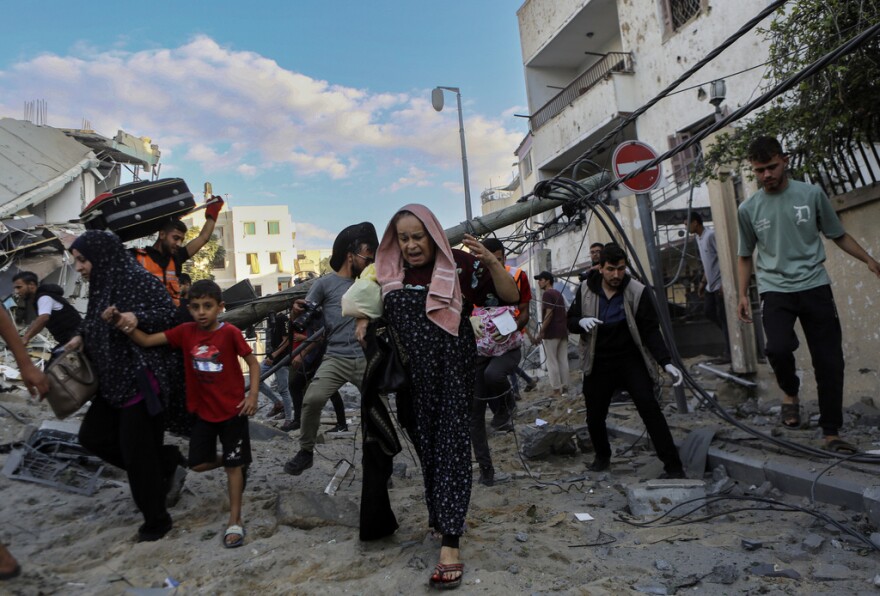Earlier this month, Hamas, the Palestinian group that controls the Gaza Strip in the Middle East, launched what many international leaders are calling the most brutal attack on Israel that the country has ever seen.
On Saturday, October 7, Hamas militants stormed into Israeli towns near the Gaza border under a barrage of rockets. The Associated Press reports at least 250 people were killed and another 1,500 were wounded during the first attack. Since then, the death toll has risen to over 4,000.
Royal Berglee is a Professor of Geography and International Studies at Morehead State. He said this recent attack on Israel by Hamas is a product of a “never forget, never forgive” mentality in the region, and a conflict that has been ongoing for generations.
“‘If you kill one of mine, I’m going to come back and hit you harder, and kill two of yours,’” Berglee said. “This cycle has been continuing since 1948 when Israel was recognized as a nation.”
That recognition, Berglee said, ignited territorial tensions between the newly formed Israel and other nations in the Middle East, namely Palestine.
“Palestine was divided 50/50 between Palestinians and the Jewish state of Israel. The Arab nations got together and went to war in ’49 and they lost, and they went to war again in ’67 and they lost,” he said. “Then, at that time, the nation of Israel took over the West Bank and Gaza.”
Gaza is so important, Berglee said, because it’s an occupied territory under the Israeli government, which means very few freedoms for the many Palestinian individuals who reside there.
“There’s been a wall around it for some time. You cannot enter it, you cannot leave,” he said. “Palestinians that live there cannot vote for leadership. They have no passport from the Israeli government, and they have no real hope there.”
While the United States classifies Hamas as a terrorist group, Berglee said it’s a Palestinian political party that has around 30,000 militant members. Those Hamas militants were aware that when they attacked last week, they were engaging in a conflict that has no end in sight, he said.
“Why did they go on a suicide mission to kill Jewish Israelis when they know they would probably die? It’s because I think they want the world to know how desperate they are, and maybe humanity can come to some solution. That this is a human problem,” Berglee said.
A diplomatic approach would seem to be the best course of action, but Berglee said it’s incredibly unlikely despite many people hoping for a nonviolent resolution.
“Both sides have a middle ground that want to work out a peace agreement and live in peace, but the two ends – the Zionist end and the Palestinian end – are set on moving the other group out,” he said. “Hamas wants to take revenge on Israel, Israel then takes revenge on Hamas, and the cycle continues.”
Berglee said the United States government must proceed with caution in a situation like this.
“We will have to pursue some type of diplomatic understanding. Our politics, as a national government, have supported the Israeli government. But, we also have been supporting innocent civilians on both sides, Israelis and Palestinians,” he said. “We want them to be protected and supported.”
Taking politics out of the equation would be a good place to start, Berglee said.
“The best thing we can do is to become more understanding of both sides of this issue and not just take it from a political perspective; take it from a human perspective,” he said. “I think solutions are going to have to come from understanding both ends and arriving at some basic compromise.”
While Kentucky has taken in refugees from international conflicts in the past, Berglee said there is very little chance of doing the same in this case as Palestinians are barred from leaving Gaza.
The United States House Foreign Affairs Committee submitted a resolution condemning the actions of Hamas, while urging full enforcement of sanctions against countries like Iran, that would support Hamas. The resolution, signed by 390 lawmakers, also pledged continued support for Israel. The US has so far taken no military action in the conflict.

